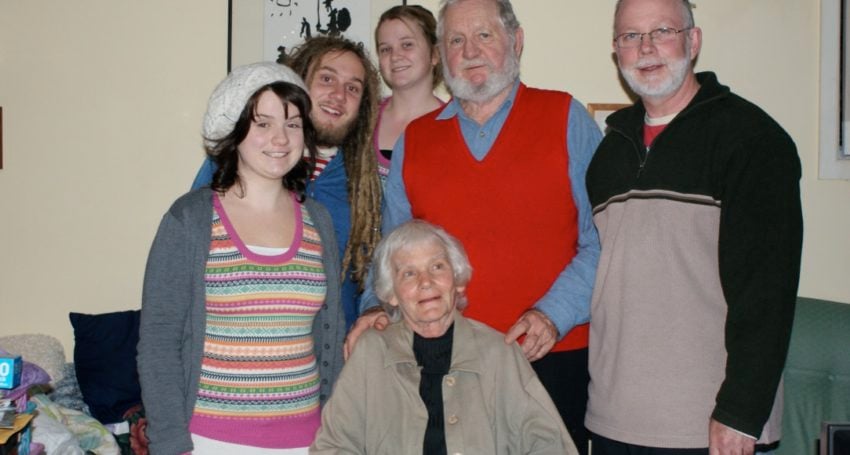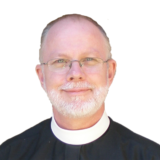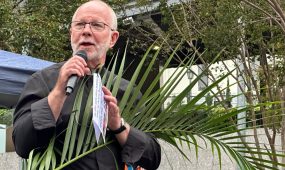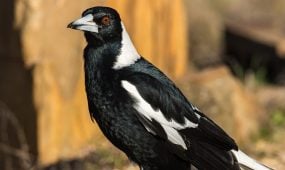Happiness
Reflections
“Whenever one of her kids announced a plan for their life, be it to do with a course of study, a career change, the forming of a relationship or a relocation, my mum would ask us just one question, ‘Are you happy?’ For my mum, happiness was the greatest good; the measure of all things,” says The Very Rev’d Dr Peter Catt

Whenever one of her kids announced a plan for their life, be it to do with a course of study, a career change, the forming of a relationship or a relocation, my mum would ask us just one question, ‘Are you happy?’ For my mum, happiness was the greatest good; the measure of all things. I later discovered that this focus on happiness made her an intuitive Aristotelian. This is because Aristotle held that happiness is the end goal for every human.
Anya Leonard summarises Aristotle’s approach to happiness in this way:
“All human activities are done in order to attain something that is good. We don’t do something because we think it will be bad for us. In addition, most of these activities are not the main objective, but rather a means to a higher end. Consequently, the activity that is an end in itself, writes the prolific philosopher, is the highest good, and that good is happiness. We aim at happiness for its own sake, not because it will achieve something else. Happiness, therefore, is our greatest mission.”
My mum and Aristotle both understood that happiness is more than a feeling. It is something that is related to the core of our being. They also knew that the path to happiness was related to the making of choices; the making of ‘good’ choices. That is, the making of choices for good. Aristotle suggested that the path to happiness was accessed through the living of a life of virtue. And that the pursuit of a life of virtue was based in one’s disposition, one’s approach to life.
Advertisement
In other words, to be truly happy is to have a deep-seated sense of feeling good about oneself; a feeling that develops through doing the right thing.
So, for example, happiness comes from exercising honesty when honesty is not required by others; when it is ‘done in secret’, as Matthew’s Jesus would say. Examples of such an expression of honesty include not claiming a tax deduction one could ‘get away with’, ‘because everyone does it’, or chasing after a person who dropped a $10 note on the street to return the note even though no one other than you saw it fall.
Our Christian faith summarises this approach to life in the words, “love your neighbour as yourself”.
All this means that true happiness is linked to the sense of deep contentment that comes from attending, for good, to that which the moment or life requires. It is not associated with living an easy, or the easy, life. Happiness, as understood by my mum, Aristotle and Jesus, is not the same as joy. Even during very difficult times we can feel ‘happy’ despite the fact that we are facing complex and challenging issues. Happiness, therefore, is not dependent on outside forces, the actions of other people and is not produced through an attachment to things.
Advertisement
The search for happiness eventually teaches us that we do not need to be subject to the whims of other people. For other people might not be seeking to live a life of virtue. They might not be seeking to love others. Instead they might be treating others with the lack of regard they have for themselves. I often find myself saying that the problem with the idea of loving others in the same way as we love ourselves is that too many of us do exactly that. We do not love ourselves and so treat others with the same lack of respect and care.
We are assembling this edition of The Eagle as our nation seeks to moderate the effects of the COVID-19 pandemic on our population. Seeking happiness in the face of this disaster, as so many parts of our normal life are stripped away, is a difficult call. May we each find the deep contentment, the happiness, that comes from attending to this moment in history; by seeking to care for those less fortunate than ourselves, by staying connected to those facing isolation and striving for just outcomes for those whose livelihoods have been stripped away.
First published in the April 2020 edition of The Eagle, the magazine of St John’s Cathedral. Read the latest edition of The Eagle online.






